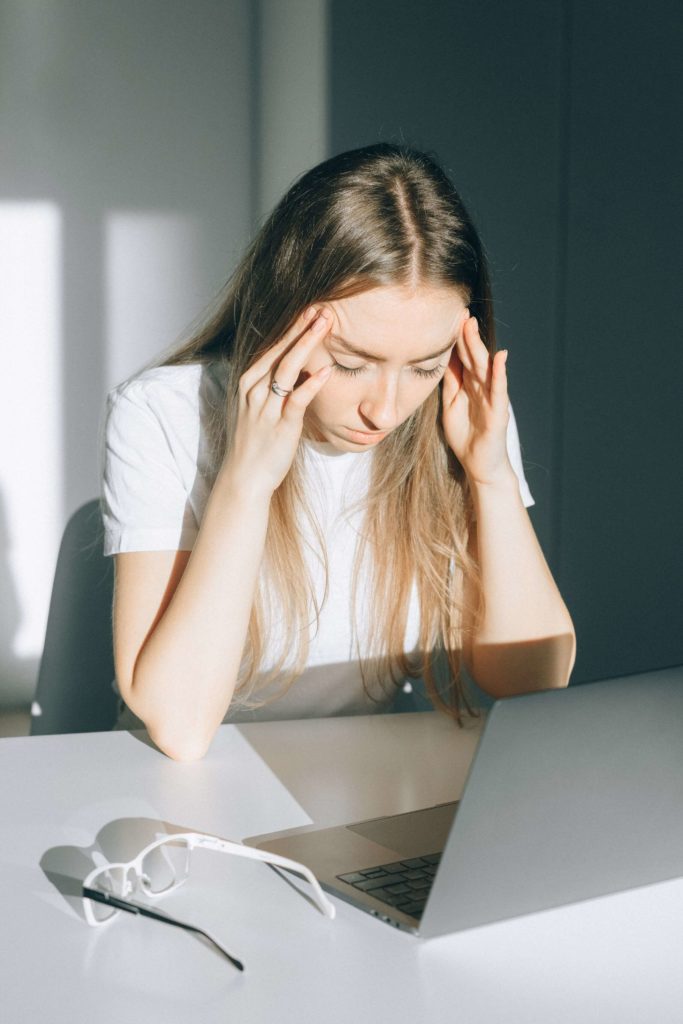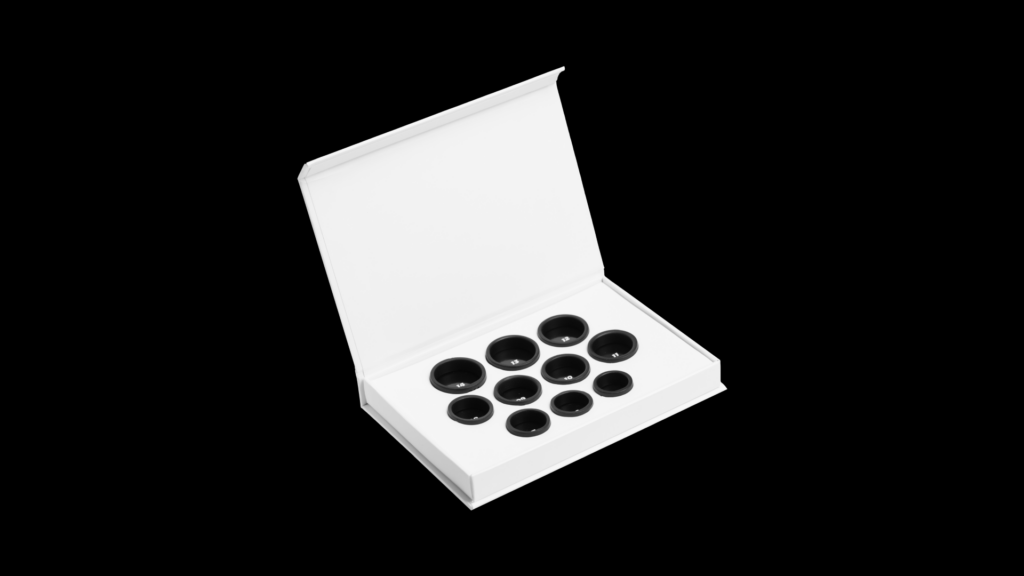Anxiety is a natural stress response. We’ve all been in situations that cause us to worry, stress, or fear a particular outcome. That fretful feeling before an exam or a job interview or a big presentation, the jittery sensation before undertaking a risky task or manoeuvre, or the chill down our spines worrying for our safety. Well, these are a few examples of High Functioning Anxiety.

Highlights
- What is high functioning anxiety and ways to overcome it,
- What are the symptoms and causes of high functioning anxiety?,
- Anxiety and its relationship with creativity.
While anxiety is a part and parcel of life, helping us through stressful situations by giving us a jolt of adrenaline, making us cautious or apprehensive, or even preparing the fight or flight response to kick in, prolonged anxiety which is a constant for any situation, and hinders our actions and creativity, are definite signs of anxiety disorder, which is clinical. Anxiety is unpleasant, no doubt about that, but it’s a normal response and may spur us to work harder and smarter when it does not interfere with our daily routine.
But when it comes to anxiety disorder, all our activities are marked by constant fear and stress, which is usually intense and does us no good in terms of mental health, due to constant stress and fear. We stop enjoying the things we usually do, in fear of the outcome, which is usually blown out of proportion by anxiety. Symptoms include an increase in heart rate, difficulty falling asleep, restlessness, hyperventilation, and trouble concentrating.
When anxiety reaches its peak, it can lead to an anxiety attack wherein there is an overwhelming feeling of fear, worry, or distress, usually accompanied by shortness of breath, a dizzying sensation, sweating, a rise or decrease in body temperature, and numbness. Science is yet to pinpoint an exact cause of anxiety because it differs vastly in individuals, but what it can say is that anxiety is usually influenced by genetics, environmental factors, and brain chemistry.

What is High Functioning Anxiety?
Once clinically diagnosed, anxiety is usually treated through medication, psychotherapy or meditation. Anxiety occurs in numerous forms such as Obsessive-Compulsive Disorder (OCD), Post Traumatic Stress Disorder (PTSD), Social Anxiety Disorders, Phobias, etc, which are all forms of anxiety. Now that we’ve briefly summarized anxiety, let us delve into our topic of focus, which is High Functioning Anxiety, HFA. High Functioning Anxiety, while not clinically diagnosed and recognized, is a condition wherein a person suffering from anxiety, does not show any signs, but rather, functions normally, all the while subjected to anxiety.
On the surface, a person suffering from HFA seems calm and collected, but it might be a completely different story on the inside. You might perform tasks normally, and people around you might not exactly peg you to be anxious, but on the inside, there might be sudden bouts of nervous energy, fear of failure, or fear of disappointing others. Owing to it not being recognized as a distinct anxiety condition, there is not much research when it comes to HFA. People suffering from HFA might have a subclinical condition which is a mild impairment, unlike OCD or PTSD. Subclinical anxiety symptoms may be atypical, mild, hidden, and brief, but recurrent.
What are the causes of High Functioning Anxiety?
Owing to High Functioning Anxiety not being clinically recognized as a form of anxiety disorder, there is not much research into what exactly causes it, but as it falls on the spectrum, experts have postulated a few causes, which are as follows:
1. Stress
Exposure to stress can trigger HFA at any point and is one of the primary causes.
2. Personality Traits
Being shy as a kid, or showing anxiety in social situations increases the risk of having anxiety as an adult.
3. Genetics
If a person has a family history of anxiety disorders, they are more likely to develop conditions of any form of anxiety disorder, or even function with HFA.
4. Underlying Health Issues
Underlying health issues such as heart conditions, or other physical health concerns can trigger or worsen symptoms of anxiety. Having other mental conditions can also be a risk factor in flaring anxiety.
5. Consumption of Drugs and Alcohol
Misuse of drugs and alcohol can trigger anxiety, while withdrawal from said substances also instigates it.

High Functioning Anxiety Symptoms
Due to a lack of medical research in terms of HFA, professionals are yet to pinpoint exact symptoms. Additionally, since HFA is well masked by people suffering from it, it proves to be difficult to establish concrete data. But as anxiety disorders lie on a spectrum, and HFA falls on the lower end of it, we may be able to outline the broad symptoms of anxiety, but milder when it comes to HFA, which are as follows:
- Easily frustrated or irritable, coupled with jittery or jumpy tendencies.
- A constant fear of failure or the subsequent judgement.
- Constant worry and fear.
- Inability to relax or keep calm for prolonged periods.
- Constant overthinking and subsequent stress.
- Over analyzation of situations or facts.
- Elevated heart rate.
- Faster breathing.
- Issues related to sleep.
- A constant desire to keep themselves busy or distracted.
- Changes in appetite.
- Digestive issues.
- Need for overachievement.
High Functioning Anxiety And Its Effect On Your Creativity
A study conducted by the Interdisciplinary Center Herzliya found that anxious people tend to be more intelligent, with a direct link between anxiety and being more creative. It’s generally not uncommon that creative people such as artists, actors, singers, etc struggle with some form of anxiety.
A classic example would be the famous director Larry David, who is considered to be timid and neurotic by the world, who has produced works of masterpieces and has essentially capitalized on his anxious nature, and has created endearing and anxious characters, modelling his traits after themselves, and channelling it onto the big screen, with troubled and stressed out characters who tend to overthink and the subsequent drama and dilemma it brings about. Jerry Garcia, the lead singer of the popular band ‘Grateful Dead’ has also been quoted saying that music is “something that escapes between frenzies, between anxiety attacks.”
The main connection between anxiety and creativity is the imagination factor. This lies in the fact that the same brain, which can conjure up strokes of genius, melodies of grandeur and compositions of the highest orders, can also imagine repetitive thoughts and dreadful scenarios, all owing to the fact of unbounded imagination. These individuals use their imagination to conjure up something before it happens, which can be a piece of art or an issue or situation, which can lead to worrying or panic.
Overthinking and over-analyzation also accompany these frenzies of imagination, making a person neurotic or anxious. While there is a connection between anxiety and creativity, this is not to say that one condition is always causing the other. There are plenty of cases wherein people are creative without suffering from anxiety, or vice versa.
But, word of caution! Anxiety should never be romanticized owing to its connection with creativity. Usually, anxiety is a hindrance, and if there is no favourable balance, anxiety can weigh down our creative aspects, instead of being complementary to it.

Ways to overcome your Anxiety
1. Identify
The first step is to always identify and pinpoint the symptoms. Knowing ourselves and our anxiety triggers can easily help us deal with them effectively and to the point.
2. Work with Fear
The next step is to work with our fears instead of suppressing them or ignoring them. Working with our fears presents us with an opportunity to deal with them better, and at the same time, it can be used as a motivation factor to overcome fear itself. Working with our fears helps us understand where it’s arising from and why enabling us to untangle at the root of the problem.
3. Meditation
We must also make meditation and breathing a priority. If we ever catch ourselves being anxious or identify triggers, it’s always advisable to take a step back to breathe and clear our minds. Learn to reconnect with your body and this lower Blood Sugar level.
People with HFA usually tend to live in their heads and find it hard to break the cycle of stress and worry. But once we incorporate deep, steady breathing, coupled with meditation, we can allow our body to reconnect and ground ourselves to the present reality, instead of focusing on the reality playing inside of our heads.
4. Learn to Control Habitual Modes
Additionally, we must also learn where and when to draw the line. Once we’ve identified our symptoms and triggers, we can learn where to draw the line when we find ourselves gravitating towards habitual modes of anxiety. It’s advisable to take a step back and to breathe when we find ourselves caught up in this cycle. The next step is to break the cycle by creating a routine out of it. Whenever anxiety settles, always take a step back and remind yourself to breathe and to live in the present moment, instead of your head.
5. Creating a Positive Daily Routine
We must also learn to embrace a healthy lifestyle. Good health along with a good diet and adequate sleep can boost our mood and confidence, and vastly improve our self-esteem, quelling anxiety to a great extent.
6. Seek Medication & Psychiatrists
Lastly, it’s always advisable to seek medical or professional help. Psychiatrists and psychotherapists can understand the dynamics involved with HFA, and help us sort it out and put us on our road to recovery.
Conclusion
With continuous engagement and commitment, we can easily learn to deal with HFA and treat it successfully. Self-help strategies and treatment can come a long way to ensure victory and quash our struggles with anxiety.
Disclaimer: The contents of this article are for general information and educational purposes only. It neither provides any medical advice nor intends to substitute professional medical opinion on the treatment, diagnosis, prevention or alleviation of any disease, disorder or disability. Always consult with your doctor or qualified healthcare professional about your health condition and/or concerns and before undertaking a new health care regimen including making any dietary or lifestyle changes.
References








